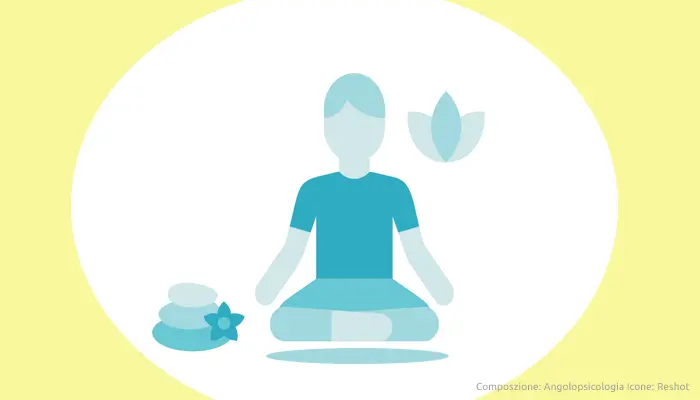
Getting started in meditation for the first time can be challenging for many people. Actually, meditation is very simple. It is enough to concentrate on something, usually the breath, for a period of time, to empty the mind. However, that simplicity is precisely the biggest challenge since it is difficult to silence a mind that is used to a constant flow of stimuli and that continuously jumps from one idea to another.
For this reason, many people abandon meditation before starting, so that all the benefits that this ancient technique provides are lost. In fact, meditation changes the brain, helps us relax, decreases emotional reactivity, and can even change our DNA. The good news is that starting to meditate from scratch is not that complicated, as long as we keep a few basic ideas in mind.
How to get started in meditation for the first time?
1. Remember that your goal is not to become “good” by meditating
Getting started in meditation with an evaluative mindset, trying to be “good” or to do it “right” will not improve your experience, on the contrary, it can make it disappointing and frustrating. Meditation is about focusing on the present and not judging the experience, which means excluding any kind of judgment about your meditation “abilities”. The secret is simply to meditate, without asking yourself if you are good or bad at it because there are no “bad meditators.”
2. Stop criticizing your wandering mind
When you first start meditating, it is normal for your mind to wander. It’s hard to keep it focused. Then you can fall into the trap of recriminations. You may say to yourself, “I’m already distracted. I shouldn’t be thinking about this. I can’t even meditate well!” Instead of beating yourself up, accept that your mind will wander – even the great meditation masters do. Do not berate yourself or get caught up in that flow of thoughts, be kind to yourself and gently redirect the mind towards meditation.
3. Free yourself from expectations
In Taoism, meditation does not pursue a specific purpose. Taoist masters think that if we pursue a certain objective in meditation, it will be elusive. Instead, you just have to sit back and meditate, without obsessing over a specific goal. It is likely that when you meditate you reach a state of inner calm and your mind clears, or you may have other kinds of amazing or enlightening experiences, but for that to happen, you must approach meditation with a mind that is curious and open to experience.
4. A little is better than nothing
As starting meditation is not usually easy since the mind is not used to this type of exercise, it is likely that at first you feel a bit bored or even frustrated. It is important that you are aware that boredom or frustration is just one more distraction that demands your attention. In any case, remember that it is not mandatory to meditate for a certain period of time. Conscious breathing is better than none. One minute is better than nothing. Over time you will gain practice and you will be able to meditate more.
5. Choose a form of meditation that you like
One of the keys to starting to meditate is finding a technique that works for you. There are many options, from vipassana meditation to zazen or transcendental meditation. There are also guided meditation programs that can help you take your first steps, until you gain some practice and can meditate on your own. The most important thing is that you feel comfortable and at ease with the technique you choose because that will cause you to meditate again. And of course, don’t forget to create a pleasant and uninterrupted meditation space that facilitates inner recollection.



